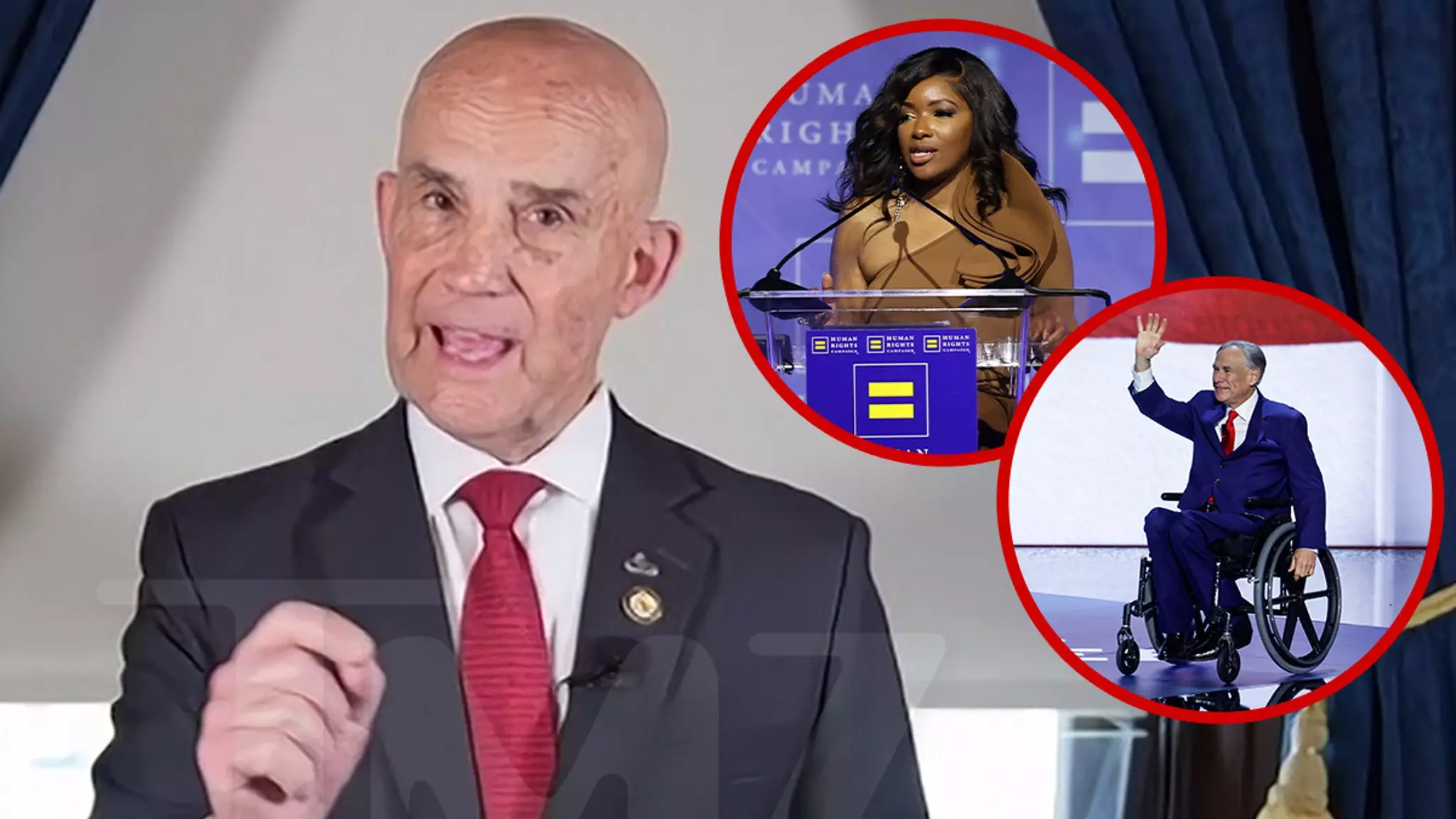In recent weeks, an intriguing clash in Texas politics has ignited heated discussions about the boundaries of political humor. Congressman Keith Self’s vehement criticisms of Congresswoman Jasmine Crockett for her quip, referring to Governor Greg Abbott as “Governor Hot Wheels,” not only reveal the intricacies of political discourse but also expose a double standard that warrants further examination. The core of this debate revolves around how different sides of the political spectrum handle jokes, particularly those touching on sensitive subjects like disability.
Self’s portrayal of Crockett as a “bully” juxtaposes his earlier silence regarding President Donald Trump’s notorious mockery of journalist Serge Kovaleski’s disability. Such inconsistencies raise significant questions about accountability in political commentary, especially when it comes to disability—an issue that affects millions of Americans. Self’s selective outrage suggests a deeper narrative where political allies are shielded from consequences, while opponents face ramifications for similar behaviors. This imbalance not only undermines the integrity of political dissent but also trivializes the serious issues such as the respect and dignity of individuals with disabilities.
Self-Deprecation vs. Targeted Humor
Self argues that there is a crucial distinction between self-deprecating humor and insults targeting others. This perspective suggests a nuanced approach to comedy within political commentary; however, it relies heavily on who is delivering the joke and to whom it is directed. Abbott, a public figure with a disability, has made jokes at his own expense, which Self touts as acceptable. Yet, when Crockett uses humor in a way that deviates from this expectation, it becomes an attack rather than a humorous critique of policies. This discrepancy highlights not merely the nature of political humor but also how perceptions shift based on political affiliations.
Crockett, in her defense, takes a firm stance, asserting that her comments were aimed at Abbott’s policies rather than his disability. By framing her humor as a critique of public policy rather than a personal attack, she attempts to disentangle her statement from the ramifications of ableism, contending it lacks malicious intent. Nevertheless, her refusal to apologize demonstrates a willingness to engage in contentious debate, illuminating the polarized response from constituents and the media alike.
The Role of Public Discourse
Ultimately, this episode should prompt a more significant discussion about how public figures navigate the complex territory of humor and criticism, especially regarding health and identity. As political leaders increasingly engage with media in a digital age—where words can spread rapidly and controversially—this incident underscores the necessity for a more profound understanding of context, respect, and accountability in public communications.
While Crockett’s comments might be viewed as an attempt to critique oppressive policies, they open the door for difficult conversations about how we talk about disabilities. The challenge lies not merely in holding individuals accountable but also in fostering a political atmosphere where humor does not come at the expense of respect towards marginalized communities. As the political landscape continues to evolve, such discussions remain essential for nurturing a more inclusive dialogue for all.

